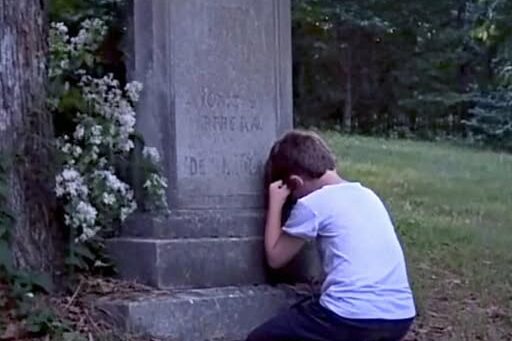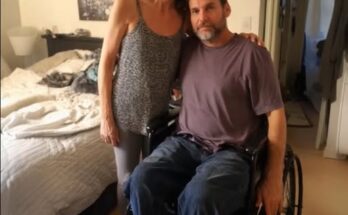Stuart’s sneakers whispered on cold linoleum as he lingered at the far edge of the orphanage’s playroom. In his small hands, a threadbare teddy bear—his only friend and fragile armor—clung tightly to his chest. At five years old, his eyes had learned one lesson too many: promises break, people leave. So, he wore gloom like a shield—no one would take him and break him again.
Then Jennifer arrived—the woman who crouched beside him instead of towering over, who let him choose to stay when she asked if he’d come home with her. “You really want me?” he asked, suspicion baked into his small voice. “More than anything,” she replied. And though he moved into her home, his heart stayed fortified.
Years passed, and the walls remained. Steve—excuse me, Stuart—never called her “Mom.” It was always “Jennifer.” Homework turned into battlegrounds: backpacks thrown, papers scattering. He lashed out: “My real mother would understand me!” And she? She simply answered, “I might not be your real mother, but my love is real.” He turned away again.
Then came the diagnosis: Stage 4. Terminal. Jennifer didn’t collapse. Instead, she organized. A notebook of instructions—laundry, recipes, emergency contacts, insurance files. She tried to teach him to live without her. “Stop acting like you’re already gone,” he snapped. She said quietly, “I’m trying to protect you.”
A month later, she was gone.
At the funeral, Stuart stood rooted—no tears, no words, just a silent emptiness. After the mourners thinned, Carol—Jennifer’s best friend—found him. On the ninth day after her death, Jennifer had asked her to leave something at the grave. So Carol said, “Go tomorrow.”
Stuart went. The graveyard was silent, cold as truth. On the headstone: an envelope in familiar, careful handwriting. His name: “Stuart.”
His fingers trembled as he opened the letter. It wasn’t from “Jennifer the adoptive mom.” It was from Jennifer at nineteen—the scared girl who gave birth to him, abandoned him at the shelter when she couldn’t keep him safe, then spent years saving and hoping to bring him home. The letter confessed: “I am not just your adoptive mother—I am your biological mother. I have always been your mother. I loved you before you were born, through every harsh word, and I love you still. Forgive me.”
And something inside him broke—cleanly, finally. The walls, the anger, the loneliness—they tumbled in that moment. Pressing the letter to his chest, he whispered, “Mom.” He said he was sorry and that he loved her. The wind rustled through the trees, strangely gentle.
Grief didn’t vanish. But now, visiting her grave became a habit—not duty, but connection. He talked to her about school, the teacher who misunderstood him, the math test he passed. At home, he discovered her small acts of care: a stitched-up teddy bear, labeled drawers, a photo of them together—him scowling, her smiling like she knew the boy behind the frown. In a closet, he found her diary: grocery lists, cereal reminders, a note—“Always & forever, Mom.” He copied it onto a sticky note and placed it on the bathroom mirror.
On the forty-ninth day, he brought his own letter. A single page: “I was wrong. You were my real mother the whole time. You chose me twice. I choose you every day.” He left it at the grave, tucked beneath the vase.
He walked home feeling lighter. The house felt less empty. He followed her recipe for roasting chicken, said grace, and for the first time in years, dinner tasted like something more than survival—it tasted like belonging.
Each visit, he brought news, victories, small triumphs. He learned: love isn’t always dramatic. Sometimes it’s sticky notes, casseroles, showing up. And sometimes love finds you late—but just on time.



